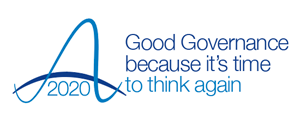System thinking at Hastings community hub
17 June 2020

GGI’s bulletins have focused largely on health and social care issues throughout the coronavirus crisis. But of course there are other sectors on the frontline of the response to the pandemic.
As part of a broader review of the impact of COVID-19 on life in Britain, we hear from Jane Hartnell, Managing Director of Hastings Borough Council, about the significant role local authorities have in meeting the needs of their communities during the crisis.
Social crisis
In responding to COVID-19 as a local town council we refocused our priorities and ways of working – in some cases literally overnight.
Protecting our staff and communities to reduce transmission of the infection was the first priority, as well as continuing to deliver essential services. Staff worked tirelessly, coming together as one team and working in collaboration with key local partners, liaising with relevant central government departments and briefing the local MP.
The intense initial response period has now passed but the council team continues to adapt and react quickly as government guidance changes. Focus is now on the re-start and recovery phases for the economy and community of the town.
Community hub
In late March the government announced that it would provide a centralised response to support those most at risk. Help would be in the form of food, delivery of medicine and social support. Local authorities were asked to establish community hubs, which would mobilise to complement and support these clients in the short term – and when the government support was not sufficient – and provide similar support to others who needed help.
The announcement prompted a heartening groundswell of local volunteering. This in turn enabled different organisations to collaborate, share information and develop an effective way of offering local support, advice and information.
Active within the hub are long-standing local organisations who recruited large numbers of volunteers as a direct response to COVID-19. The hub crosses many areas of work and has the full involvement of the NHS, Hastings Borough Council, the county council, Sussex Police, social housing providers charities, business support initiatives and community groups. In a remarkably short time, the members of the hub created a local system, offering:
- a designated and promoted telephone helpline/triage service
- a volunteer-led service offering practical support
- an information service disseminating key messages with an internet TV offer (‘the isolation station’)
- a telephone befriending and checking in service
- a system of emergency support to those with food shortages
- a local relief fund with emergency funding for community groups
Each organisation involved in the hub undertakes work in their own area. But all work in genuine partnership with others, so that the most effective support can be provided.
Evidence from other emergency situations tells us that although different work will be undertaken by different organisations, where this work is linked and collaboration takes place, better outcomes for the local community will result. This idea is the guiding principle behind the work of the hub and its members.
Subgroup activity
A series of thematic subgroups meet regularly, bringing together a wider range of organisations to develop a systems-based approach, analyse trends and issues and anticipate further interventions.
Mental health – Examining the long-term impact of isolation and configuring responses to both clients and the support needs of volunteers or staff working with those with complex needs.
Food – Creating a system to supply food to individuals in need, ensure a constant supply of donations and create a connected food system on a borough-wide basis.
Children, families and young people – Joining up an approach to support families who face challenging circumstances, particularly as school-based support services are either less available or not available at all.
Referrals – Reviewing progress of referrals, data sharing and pathways to acute services where these are needed.
Information and communication – Collaborating on cascading information, promoting services and profiling hub activity.
The range of services offered to local residents by hub partners is comprehensive:
- food parcels, shopping, prescription collection, local food hubs, transport
- learning packs for children, befriending and checking-in telephone support
- leaflet delivery, energy vouchers, micro-loans, training for befrienders
- production of PPE, lockdown wellbeing support, and advice
- financial advice – especially residents of working age to help with financial support (debt advice, money management, benefits advice (especially where linked to debt/arrears)
- tenancy wellbeing support e.g. housing provider Optivo is running a Wellbeing Heroes initiative – contacting residents over the age of 70 to help with isolation, shopping etc.
- welfare support – for independent living residents (e.g. support for low level mental health Issues) and tenancy sustainment support.
Ongoing challenges
Emerging issues and the evolving needs of the hub will continue to be recorded. To date, the need for food, medicine collection and delivery, and general advice is most prevalent. There are also many seeking financial advice, issues with fuel and Universal Credit timescales.
We are seeing more cases of people with poor mental health, and there is some impact of other services ceasing, such as podiatry/chiropody and dentistry. However, the overwhelming need still continues to be for food parcels. This is not lessening and is not a case of people just not being able to access supermarket deliveries or collection, nor volunteers to shop for them.
Sadly, we are seeing increased food poverty and we suspect that this trend will only increase as unemployment levels rise during the forthcoming recession.
If this bulletin prompts any comments or questions, we’d love to hear from you. Please call on 07732 681120 or email advice@good-governance.org.uk.
Barbara Browning
Business Development Manager

